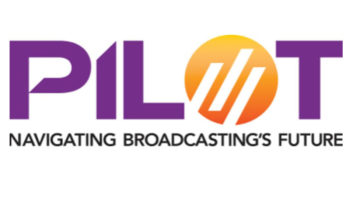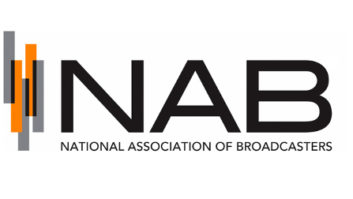The National Association of Broadcasters is openly venting to the FCC about its proposal to prioritize licensing and application procedures for stations providing a certain amount of local content. The advocacy group even suggests it has a growing concern that the FCC has lost touch with broadcasters.
In new reply comments this week, the NAB said it appreciates that the commission is looking at ways its policies impact broadcasters’ decisions to serve their communities. However, the advocacy group also said there appears to be a growing disconnect between the FCC’s regulatory actions and broadcasters’ natural incentives to provide quality, local service.
The NAB goes on to list a number of issues it says indicate that the FCC fails to comprehend the competitive complexities broadcasters face in the modern media landscape.
“Whether it is this proposal, the FCC’s 2018 quadrennial review order, the current boomerang proceeding on foreign sponsorship identification or the Media Bureau’s effective denial of the proposed transaction between Standard General and TEGNA, the commission appears lost at sea when it comes to understanding broadcasting in the context of today’s remarkably competitive media marketplace,” NAB commented.
The FCC is currently mulling a Notice of Proposed Rulemaking (NPRM) to boost local journalism that, if adopted, would prioritize review processes like renewals, transfer and assignment applications to licensees that certify their station provides an average of at least three hours of locally-originated programming each week.
[Related: “FCC Proposes to Prioritize License Application Review for Stations With Local Content“]
NAB says the proposal would have a negligible positive impact on a very small number of broadcasters.
“The commission’s prioritization proposal will do nothing to incentivize broadcasters to provide more local journalism or generate other locally originated programming because it fails to grasp the fundamental economic and competitive realities underpinning broadcasters’ programming decisions,” NAB said in its most recent comments.
NAB goes on to remind the commission that broadcasters are the only FCC-regulated entities required to provide a free service to the public. “This requirement is something the FCC takes for granted even though it is both substantial and unique; no other service is required to provide its product directly to the public through local outlets for free,” NAB said.
In fact, the proposed rules could do more damage than good, the NAB says, when it comes to FCC efficiency. “To the extent that the proposed priority system would limit FCC staff’s flexibility to address applications in the most efficient manner possible, NAB observes that the proposal here could result in prolonging, rather than expediting, the review process for applications overall.”
According to the NAB, the FCC’s notice also ignores key facts such as the ever-increasing cost of providing local programming. In short, to promote localism effectively, the NAB says the commission should focus its efforts on policies that enable broadcasters to compete in today’s hyper-competitive marketplace, rather than potentially injecting further complexity and uncertainty into its application review process.
The NAB in its filing continues to reject what it deems to be overzealous regulation by the FCC of an industry that provides a free service to listeners. The group says it wishes the commission would focus more on policies that would facilitate broadcast competitiveness in today’s marketplace
“It is perplexing that a commission effort to promote local journalism and other local programming ignores current realities and instead supposes that prioritizing the review of certain complex applications will somehow push broadcasters that do not already have the resources necessary to invest in locally originated programming to do so.”
[Related: “FCC Localism Proposal Draws Limited Comments“]
Other groups, like REC Networks, have told the FCC the proposal is “ambitious, but not practical.”
National Public Radio said it agrees with other commenters that the proposal offers little incentive for broadcasters. “The commission should consider reducing regulatory burdens for stations that provide local programming when appropriate. As NPR and others noted in their comments, the proposed priority processing likely will have limited impacts,” NPR said.
NPR says it hopes the FCC will “go further by reducing regulatory burdens for stations with local programming when appropriate.”
NPR also says the FCC could do more to expand the reach of public radio — thus boosting local journalism — by offering more tailored incentives and further reducing the burden of regulations. It says these incentives could include a processing priority for stations producing and airing locally-originated programming that could be adopted in the context of applications for new non-commercial radio stations or applications to expand the signals of existing radio stations through the use of translators, boosters or power increases.
It also says the commission could prioritize public radio stations with a history of providing local programming in NCE FM license windows “so that they can expand local services into new communities, or relaxing compliance requirements in certain circumstances for radio stations.”
Comments on the FCC’s NPRM (MB Docket No. 24-14) on broadcast localism can be read online at the FCC’s website.











